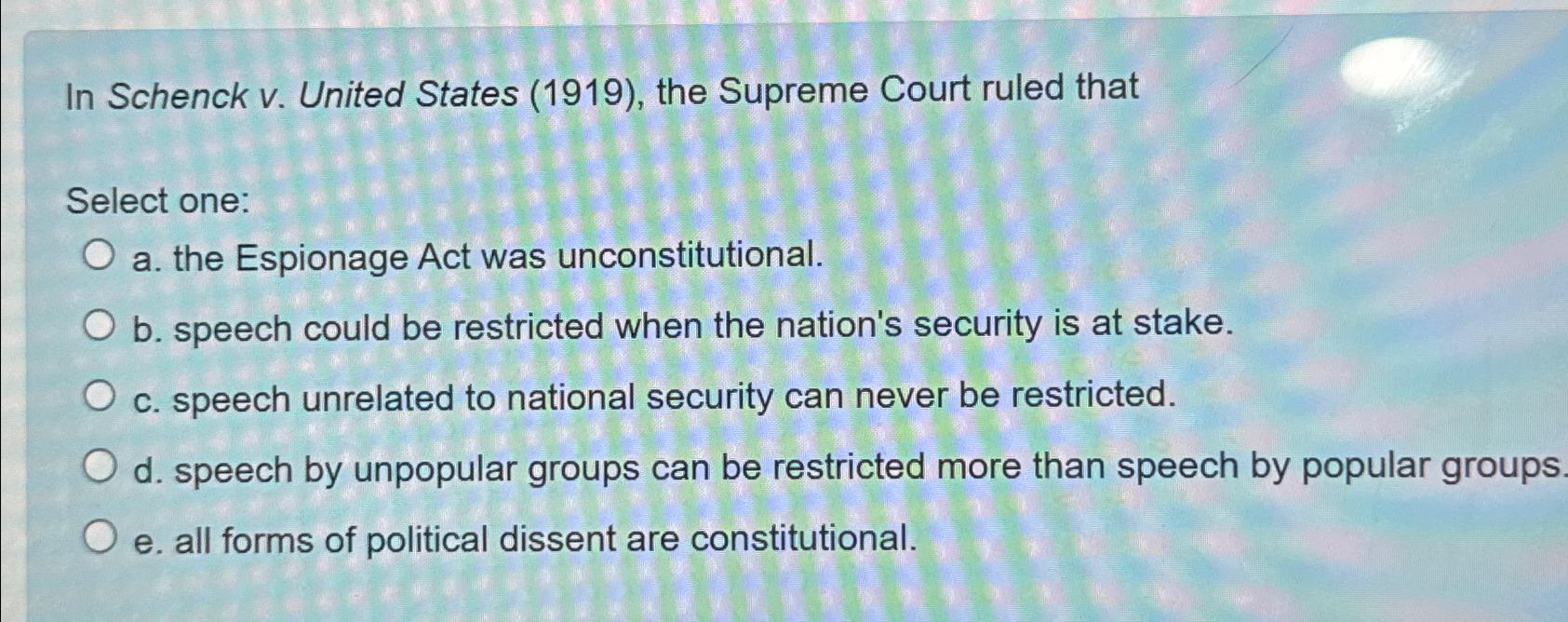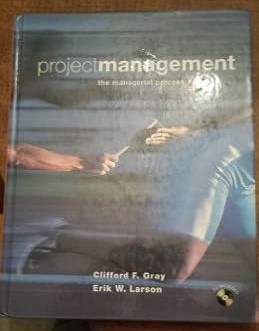Answered step by step
Verified Expert Solution
Question
1 Approved Answer
In Schenck v . United States ( 1 9 1 9 ) , the Supreme Court ruled that Select one: a . the Espionage Act
In Schenck v United States the Supreme Court ruled that
Select one:
a the Espionage Act was unconstitutional.
b speech could be restricted when the nation's security is at stake.
C speech unrelated to national security can never be restricted.
d speech by unpopular groups can be restricted more than speech by popular groups.
e all forms of political dissent are constitutional.

Step by Step Solution
There are 3 Steps involved in it
Step: 1

Get Instant Access to Expert-Tailored Solutions
See step-by-step solutions with expert insights and AI powered tools for academic success
Step: 2

Step: 3

Ace Your Homework with AI
Get the answers you need in no time with our AI-driven, step-by-step assistance
Get Started


